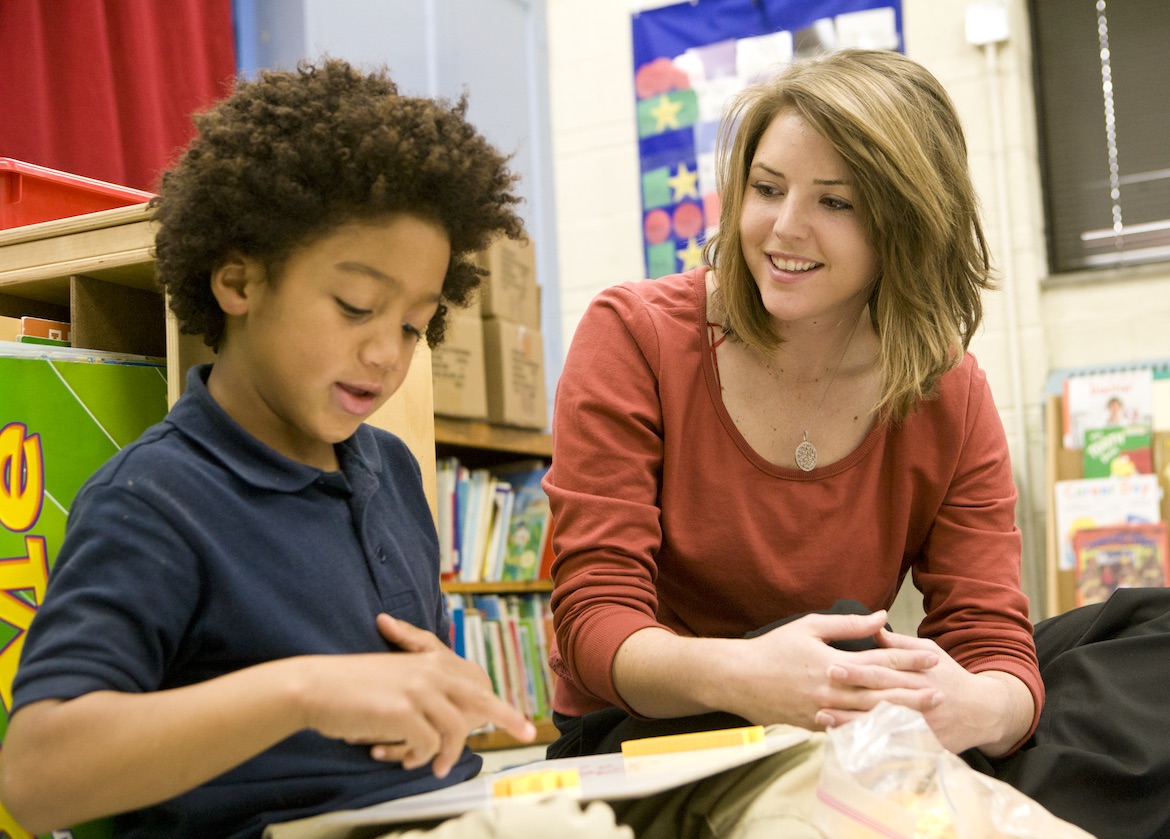
OSU College of Education and Human Sciences helping to address teacher shortage through support for present and future teachers
Friday, October 16, 2020
As Oklahoma weathers an ongoing teacher shortage, Oklahoma State University’s College of Education and Human Sciences continuously sends teachers out into the state, ready to influence the lives of individuals and communities.
Almost three-quarters of OSU’s education graduates stay in Oklahoma to teach. Some return home to a different state to teach. Some want to stay in Oklahoma but can’t afford to because of low salaries. Robin Fuxa, director of the Professional Education Unit, said OSU faculty and students actively advocate for policy change and incentives for teachers to stay and teach in Oklahoma.
“We are working on addressing the needs for teachers to stay — smaller class sizes, supporting teachers’ learning needs with mentoring programs, funding, etc.,” Fuxa said. “It’s important to make those things accessible, and we’re trying to start that change.”
The Professional Education Unit also offers potential teachers the opportunity to interact with state legislators. Events for undergraduate education students to hear and speak about policy shows potential teachers how to be involved early on.
“Teachers are agents of change,” Fuxa said. “We make sure graduates are prepared to be advocates in their communities from the first day in the field.”
Preparing Future Educators
Believing that education has the power to change lives, the college goes beyond mere accreditation requirements for its students.
The college provides semester-long internships, 120 hours of hands-on experience and pairs students with mentors to process and walk through the journey of becoming an educator.
With training on diversity, inclusion and handling trauma, potential educators learn how to meet all of a child’s needs, not just educational ones.
Fuxa said teachers are indispensable in advocating for children.
“One of the reasons teachers are so beloved is that they really engage and support students,” Fuxa said. “They create a safe environment for all students, and they serve as leaders.”
Lesilee Medina, a senior elementary education student, has dreamed of becoming a teacher since she was 7. From a low socioeconomic background and a first generation college student, she said school wasn’t always easy for her. She was invited to a teacher table talk by Fuxa and credits that as one of the unique ways OSU has prepared her to achieve her dream.
“This event was so eye-opening. Most of the conversation was about students who are minorities and how we as educators can help them become great humans of this community,” she said. “I related so much to the talk because I am considered a minority. I come from a Hispanic family. The teachers [at OSU] go into detail about everything we need to know to help us teach our future students.”
Supporting Current Teachers
Along with preparing and retaining future educators for the state, the college is also dedicated to serving Oklahoma teachers. Amid the COVID-19 pandemic, living rooms are becoming classrooms, and teachers are having to navigate the challenges of transitioning to distance learning.
The Center for Research on Stem Teaching and Learning (CRSTL) created an online series, “Teach from Anywhere,” which engaged hundreds of teachers from Oklahoma and helped guide them through the challenges of teaching during a pandemic.
Shelbie Witte, head of the School of Teaching, Learning and Educational Sciences in the College of Education and Human Sciences, said many of the school’s faculty have provided resources to teachers learning to teach online and parents who have become their assistants overnight.
“We are living out our land-grant mission through this work,” Witte said. “We continue to listen to the needs of our community and the needs that arise as we all navigate through these challenges.”
STORY BY: Kylee Sutherland | Communications Intern
MEDIA CONTACT: Mack Burke | Editorial Coordinator | 405.744.5540 | mack.burke_iv@okstate.edu
